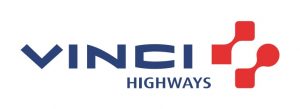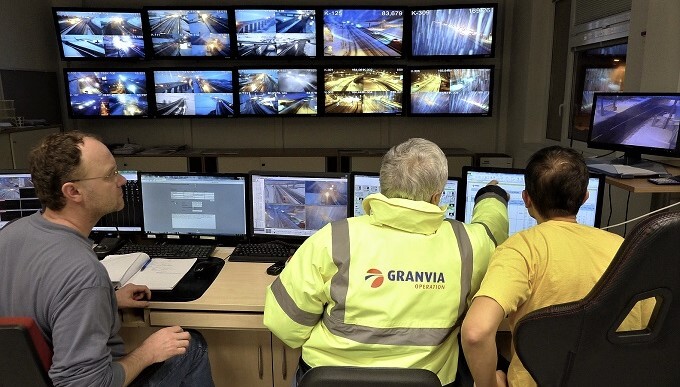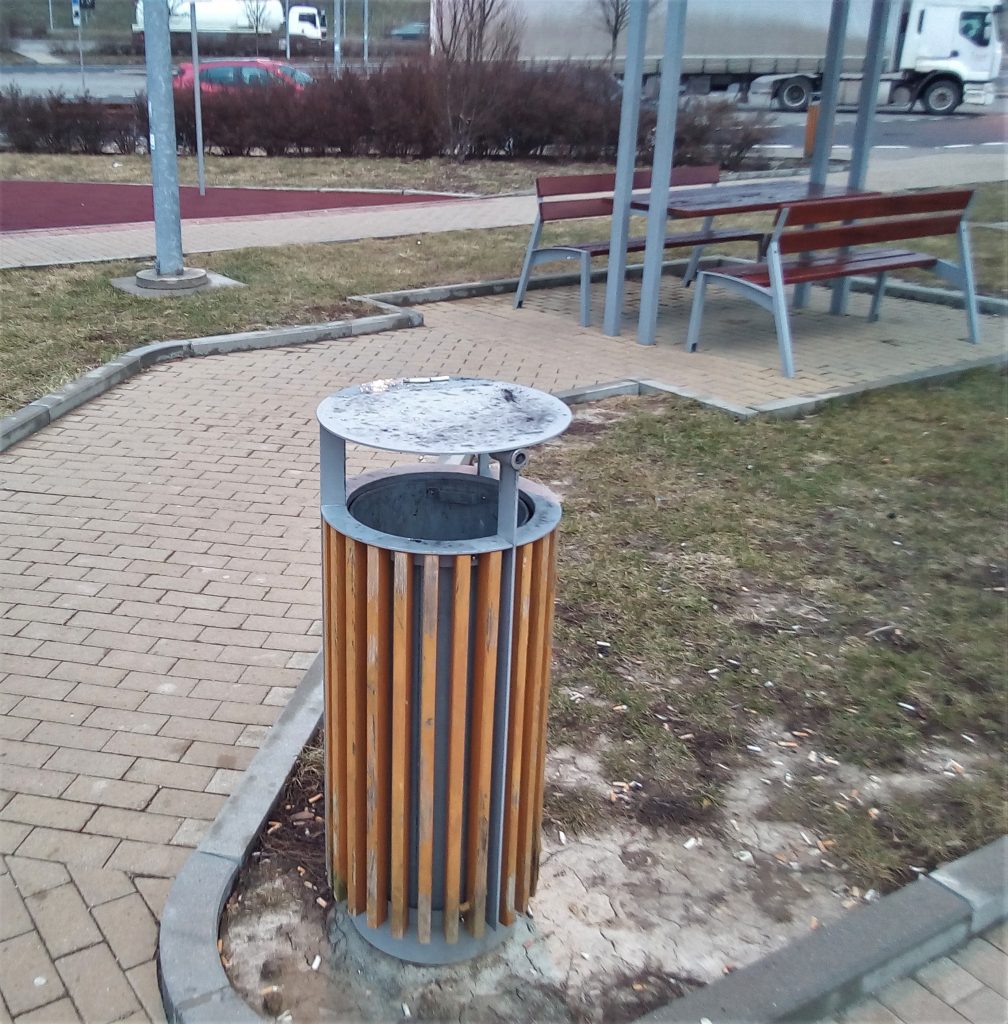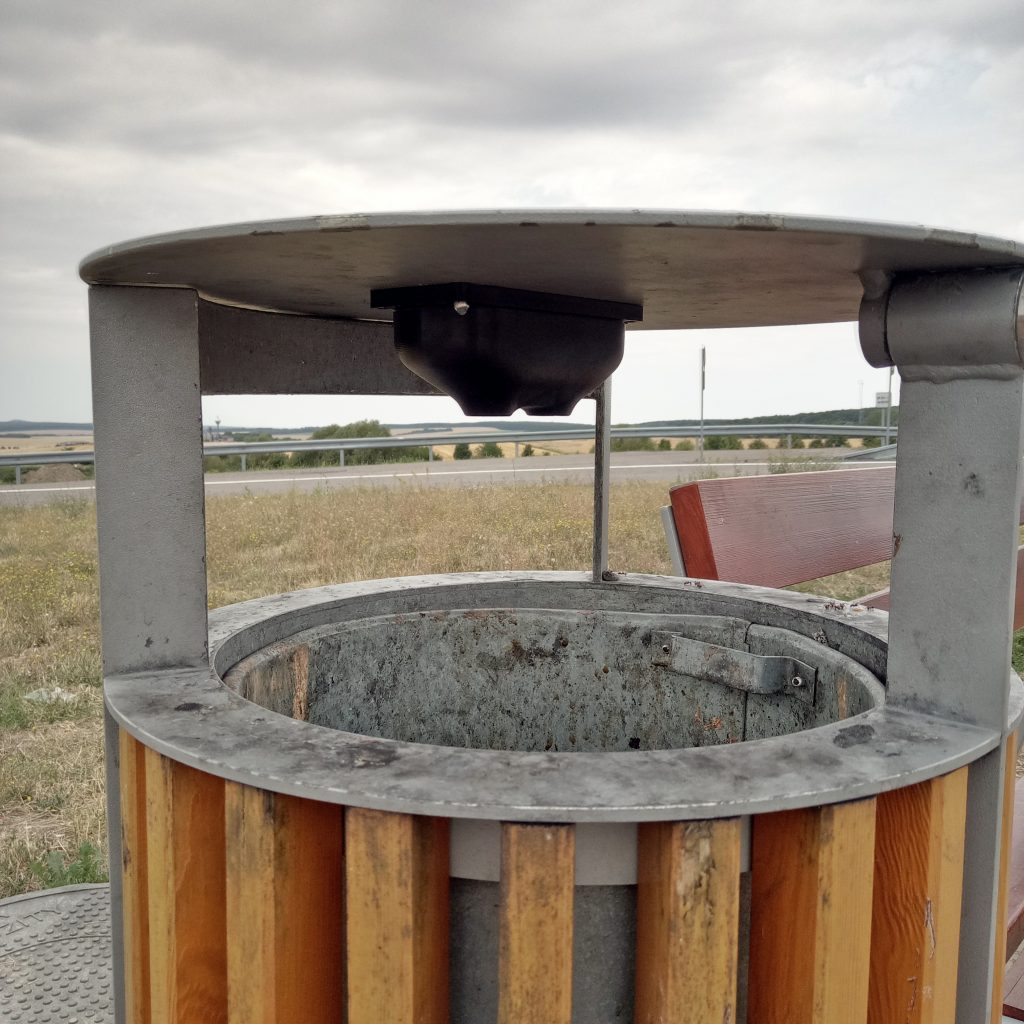Reference: Monitoring bins at highway rest stops
About the company
Granvia Operation is a 100% subsidiary company of VINCI Highways. The main focus of the company is 24/7 maintenance of entrusted motorways with the aim to provide the highest possible security, quality of service and minimal environmental footprint. Granvia Operation is responsible for the operation and maintenance of the motorway between the towns of Nitra and Tekovské Nemce, which is 51,4 km long, and maintenance of the northern bypass highway near Banská Bystrica.
Problem description
Granvia Operation is responsible for several service areas that are located along the motorway R1. Lack of insight causes waste collection service to be expensive and time-consuming due to long distances. The main aim of Granvia Operation is the quality of service – clean service areas and no overflowing bins.


Expectations from Sensoneo
„One of the duties and priority goals of our company is to ensure the availability of the contracted services that we provide in the entire territory of the motorway between Nitra and Tekovské Nemce. This is why it is necessary for us to keep a permanent overview of the status of all the equipment which is essential to guarantee the quality of our services. As the territory that we maintain is a motorway, remote monitoring is an ideal solution for us.“
Marek Holič, Deputy General Manager, Granvia Operation, a.s.
Implementation
In addition to the specific types of sensors needed for the maintenance of the expressway, Granvia Operation has also implemented Sensoneo smart fill-level sensors to monitor the waste in bins placed across the service areas on R1 PR1BINA expressway. Considering the type of the bin, the company decided to use Sensoneo single sensor. The very first sensors to make the Proof of Concept were installed in 2017 and the pilot stage of waste monitoring ran during the year 2018.

The smart system not only helps eliminate the disposal of an empty or half-empty bin, but it also saves precious resources of labour and unnecessary trips to the service areas. It proves itself to be a great cost-cutting tool. Moreover, the system enables a clever prediction of when the bins will be full again and therefore arrange for planned pickups.

“Granvia Operation found it very useful that the sensors provided early notification about waste fill-levels in containers and that we could plan their collection accordingly. Analytics represents the essential data needed for the optimization of our processes. The alarm notifications help to avoid an emergency situation and proved to be exceptionally beneficial,” explained the benefits Marek Holič.
As of March 2019, the waste sensors have entered the real life phase.
Results
1. Waste disposal optimization
Elimination of the disposal of empty or half-empty bins.
Filling prediction that enables to arrange efficient pick-ups.
2. Increased efficiency
Saving resources for workforce and unnecessary trips to the service area.
3. Financial benefits
Cost-cutting related to waste collection.
4. Data-driven waste management
Analytics represents the source of essential data needed to understand the waste lifecycle and optimization of processes.
5. Avoiding the occurrence of insured events
The alarm notifications help to avoid an emergency situation and have proven to be exceptionally beneficial.
6. Improved quality of service
Knowledge of the current fill-levels avoids bins getting overflowed.
More references
We help customers manage waste smarter


